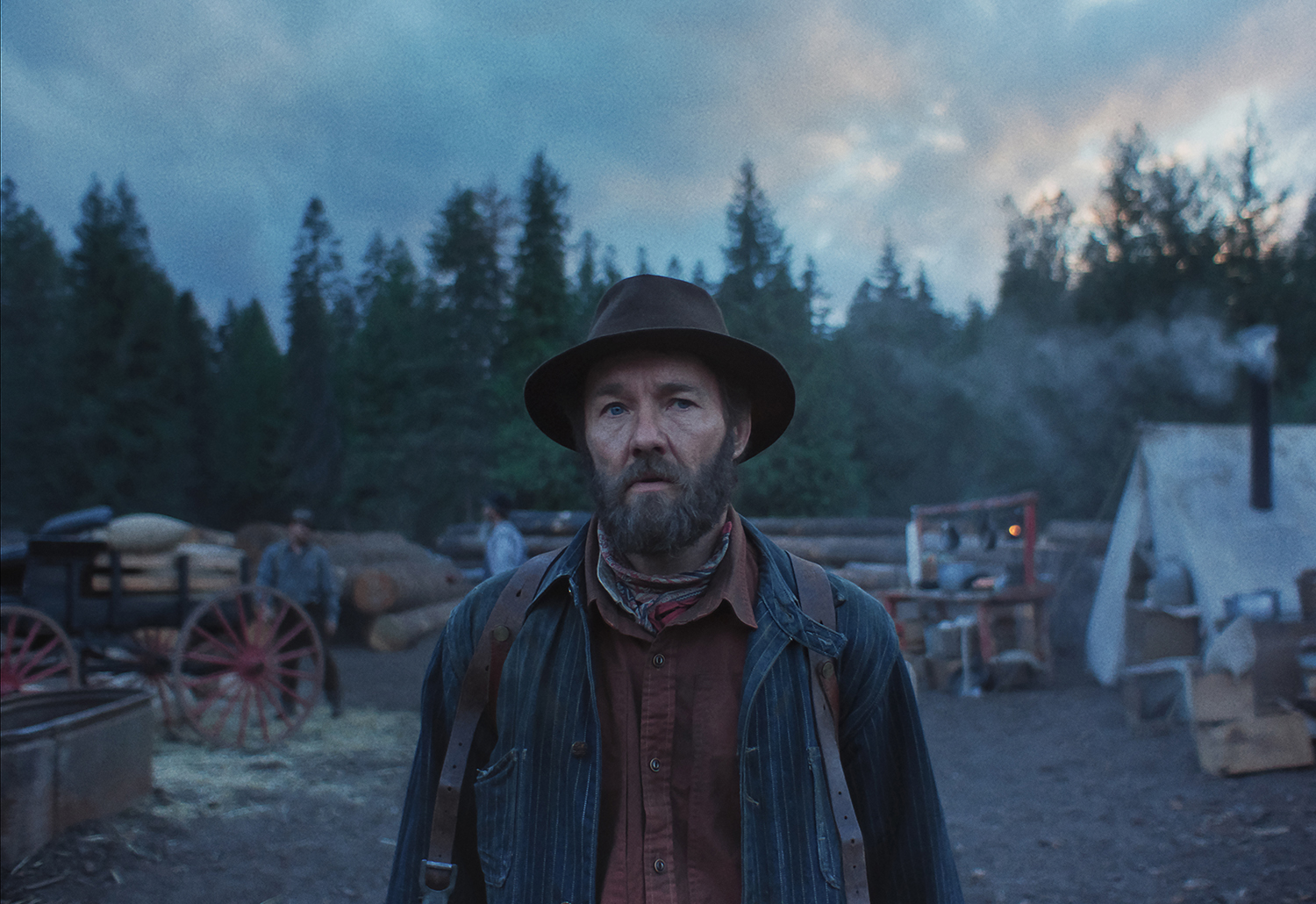
Joel Edgerton as Robert Grainier in a scene from "Train Dreams." (Photo courtesy of BBP Train Dreams. LLC and Netflix)
A chill descended on South Florida this week, briefly bringing out the jackets, sweaters, windbreakers and scarves. This much milder version of the Arctic blast that swept across the country also elicited thoughts of what remains thus far a stagnant movie season.
It's an autumnal bloodbath out there, as awards season contenders continue to open and close with little fanfare, prompting renewed efforts to find titles, from buzzy juggernauts to less heralded underdogs, that spark the imagination, preferably with commercial releases that don't land with a thud.
This scavenger hunt brings me to two character-driven entries at differing spots in the totem pole of year-end plaudits. One of them, an atmospheric period drama, is more than holding its own alongside this season's heavyweights and might gain even more traction down the line. The other, a major studio biopic profiling an iconic rock star, failed to catch fire among moviegoers but could still find favor among industry voting groups.
What makes them an ideal pairing is that they both favor a more internalized portrayal of their protagonists, more specifically in how they process trauma. But are they any good? In keeping with this topsy-turvy year, my reactions to this duo didn't quite align with my expectations. Do you want to find out why I've been dragging my feet? Read on.
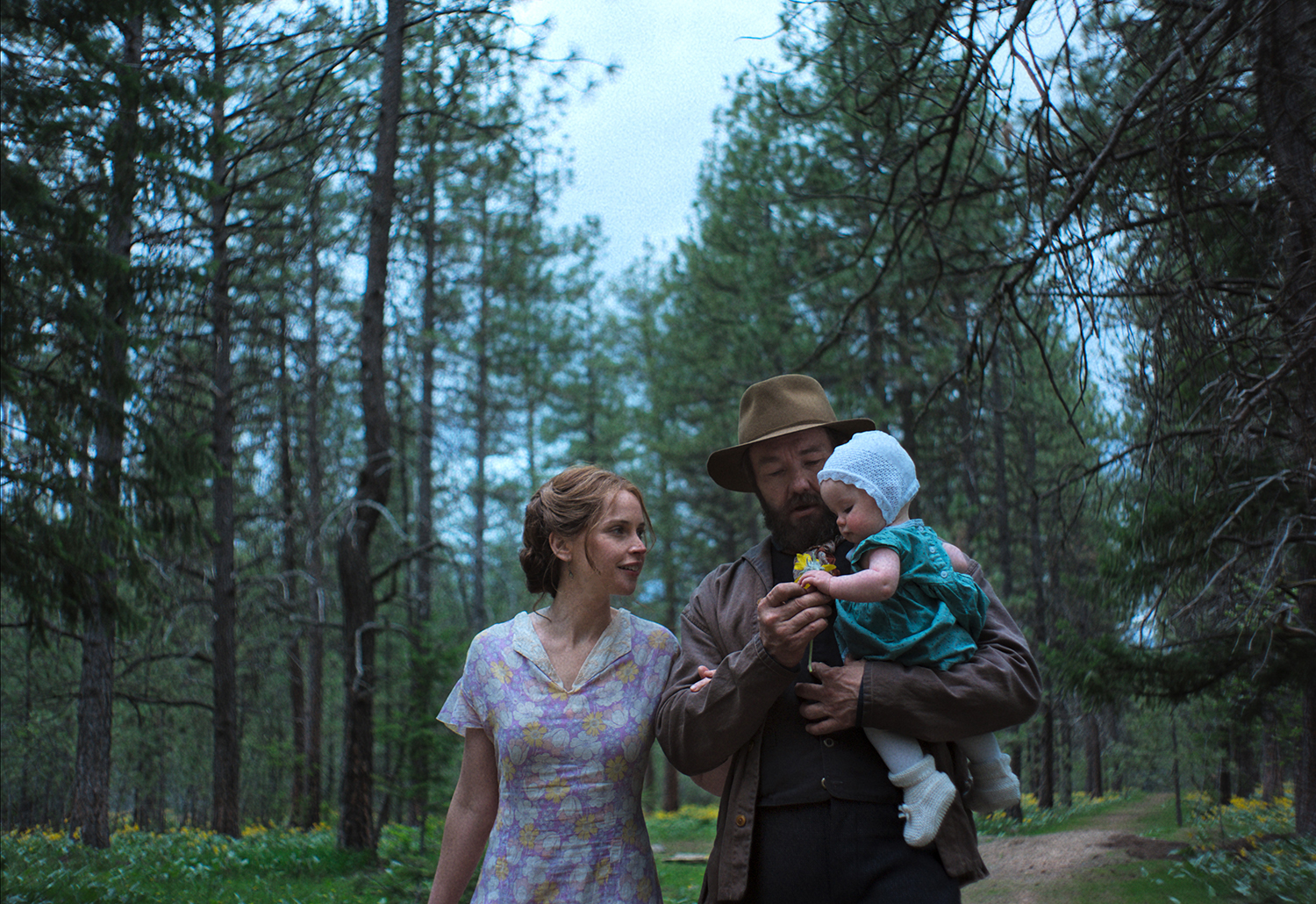
Felicity Jones as Gladys Grainier and Joel Edgerton as Robert Grainier in a scene from "Train Dreams." (Photo courtesy of BBP Train Dreams. LLC and Netflix)
“Train Dreams”: The trees sprout up as high as the eye can see. The camera is pointed upward, inviting viewers to gaze in wonder at nature's beauty. The word that comes to mind is lofty. The ambition on display, not just the altitude of the foliage.
Adapted from Denis Johnson's 2011 novella, the latest collaboration between “Sing Sing” screenwriters Clint Bentley and Greg Kwedar attempts to chronicle how the American dream can curdle into the American nightmare. Bentley directs this time (Kwedar helmed last year's prison drama), and the results are exactly what you'd expect a period piece from the makers of “Sing Sing” to be like. That's not a compliment; what again comes through is the self-importance that marred their previous project.
It really didn't have to be this way. Indeed, the early scenes in this Netflix release, depicting how logger and railroad laborer Robert Grainier (Joel Edgerton) meets and falls in love with Gladys (Felicity Jones) in the Idaho Panhandle circa 1917, keep things pretty and simple. The vibes strongly recall the work of Terrence Malick in general, the spellbinding “Days of Heaven” in particular, but “Train Dreams” is also reminiscent of “First Cow,” Kelly Reichardt's magnificent tale of friendship and enterprise in the Oregon Territory during the 1820s, and “Sweet Land,” a radiant indie romance set predominantly in rural Minnesota in 1920. There's also a hint of F.W. Murnau's “Sunrise” in the purity of the central relationship.
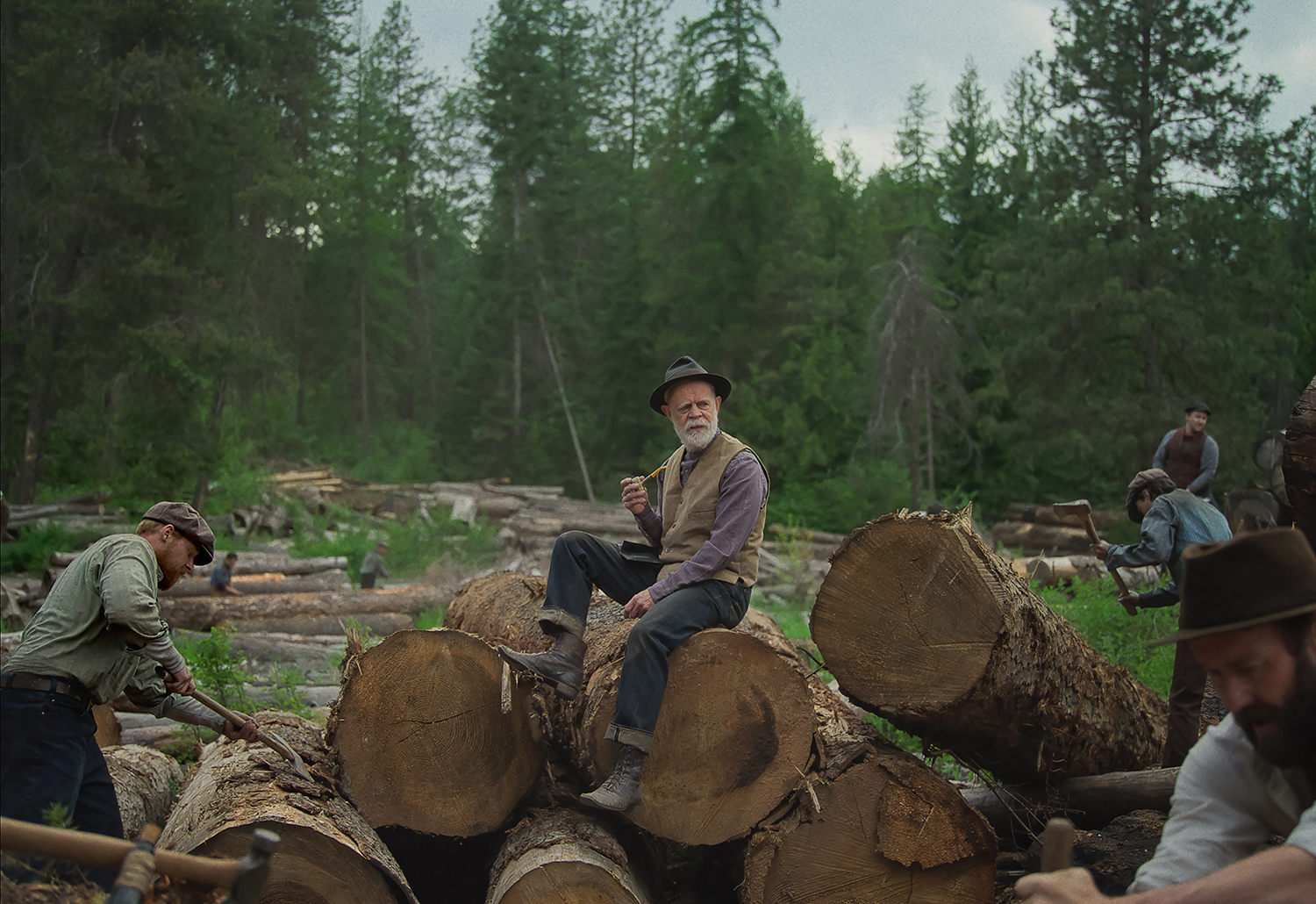
William H. Macy as Arn Peeples and Joel Edgerton as Robert Grainier in a scene from "Train Dreams." (Photo courtesy of BBP Train Dreams. LLC and Netflix)
But stumbling blocks come early and often, for the loving couple and for the movie. Fu Sheng (Alfred Hsing), a Chinese man who works alongside Robert, is thrown to his death by their less enlightened colleagues, and the guilt Robert feels over not being able to stop this atrocity wraps its tendrils around “Train Dreams,” seeping away the film's charm and testing this reviewer's patience. But Bentley and Kwedar don't stop there. They show the dead man coming to Robert in dreams, a silent apparition that's an ill fit with the poetic realism on display elsewhere and about as subtle as an anvil to the head.
The word is xenophobia, spelled out in all caps, and it disrupts the genteel rhythms of Robert and Gladys' unshakable bond. Matrimony and parenthood (to the spunky Kate) appear to be an ideal fit for these two, but Robert's extended work-related absences pose a challenge for this unit to thrive. The film is at its strongest when focusing on the couple navigating the adversity that comes their way, but rather intrusive narration by the usually reliable Will Patton explains things that are being conveyed just fine without his extraneous running commentary.
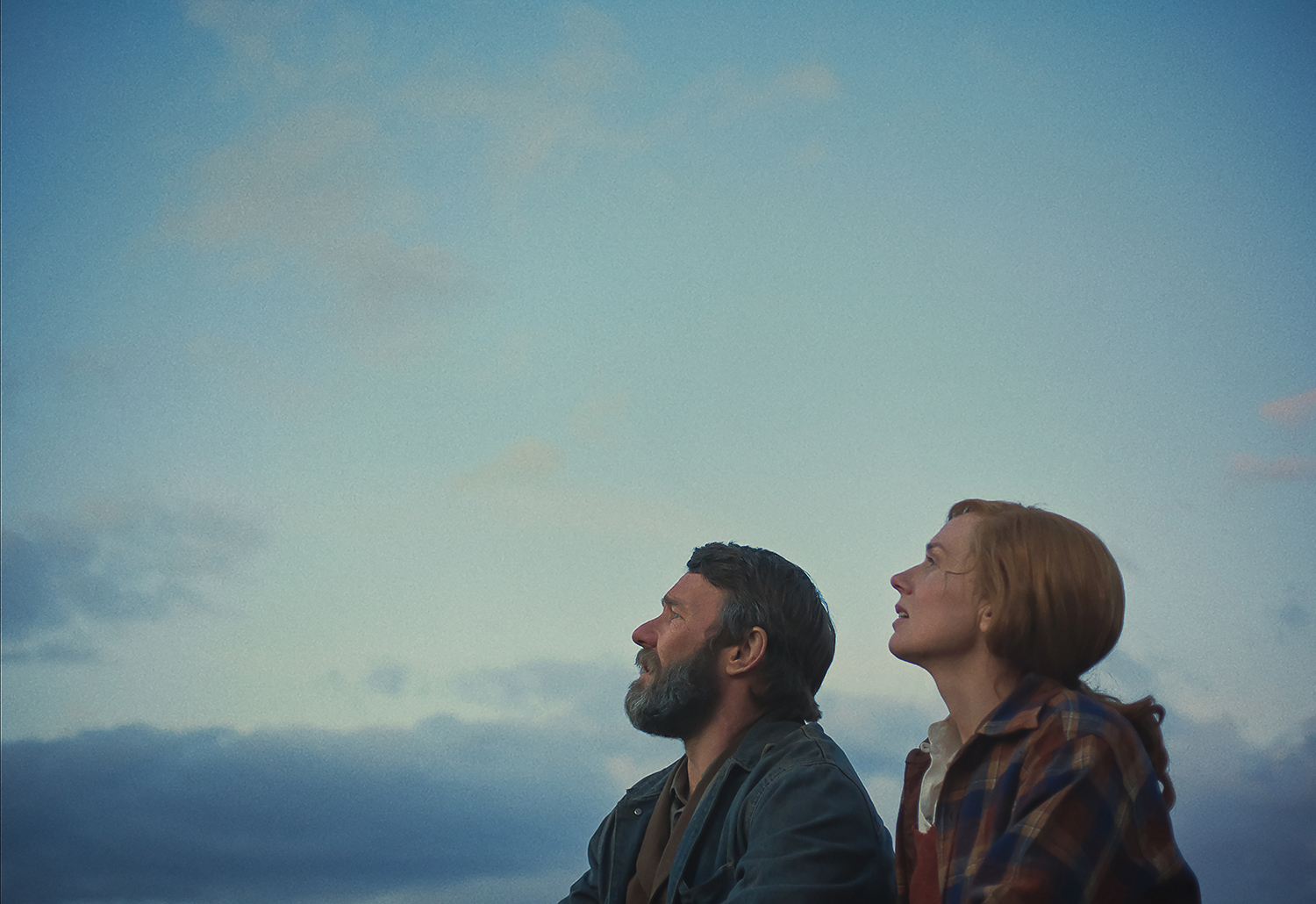
Joel Edgerton as Robert Grainier and Kerry Condon as Claire Thompson in a scene from "Train Dreams." (Photo courtesy of BBP Train Dreams. LLC and Netflix)
When a cataclysmic event irrevocably transforms the land, and Robert's inner landscape, it's a dramatic shift that Bentley is poorly equipped to handle. He and cinematographer Adolpho Veloso are too busy trying to capture the perfect boxy compositions, to catch the sun just as it breaks out from the clouds. For this revelry to work it needs to feel effortless, but in “Train Dreams,” the filmmakers' strain shows in nearly every scene, down to some sloppy camera zooms. It all calls attention to itself rather than immerse viewers in its early-to-mid 20th century setting.
Edgerton brings everyman gravity to Robert, a withdrawn man of few words, and William H. Macy and Kerry Condon provide sturdy supporting turns as an explosives expert and forestry services worker, respectively. They make a good impression on Robert, and on viewers, but it's not enough to offset Bentley and Kwedar's sanctimonious approach, a patent misunderstanding of what makes Malick's work special. It's the opposite of the humility and reverence for nature that the auteur behind “The New World” and “The Tree of Life” brings to the table.

Jeremy Allen White as Bruce Springsteen in a scene from "Springsteen: Deliver Me from Nowhere." (Photo by Macall Polay, courtesy of 20th Century Studios)
It doesn't take long for “Train Dreams” to go from evocative to insufferable, and then rest of the movie feels like an eternity. Despite its sudden yet half-hearted jumps in time, 102 minutes feel like 140, giving you enough time to ponder how this movie isn't nearly as wise or profound as its makers insist, and wishing with all your might that they get over themselves, already. Because this train never leaves the station. It's trying so hard to be uplifting that it remains stubbornly, maddeningly earthbound.
“Springsteen: Deliver Me from Nowhere”: Like many Gen-Xers, I was introduced to Bruce Springsteen when MTV began airing the video for “Dancing in the Dark,” a bouncy and breezy ditty from his “Born in the USA” album that climaxes when he plucks a young, then-unknown Courteney Cox from the concert crowd and boogies with her. It wasn't until years later that I learned the cute rocker next door with the tight jeans and the electric stage presence not only had a dark side but put out a whole album filled with songs addressing those demons.
The creation of “Nebraska,” and how it forced Springsteen (FX's “The Bear's” Jeremy Allen White) to grapple with his crippling depression, takes center stage in this disarming music biz tale that's held back when it tries to fit the mold of a traditional biopic but still manages to break free from those constraints often enough to deliver a compelling portrait of the brooding man and the even more brooding artist.
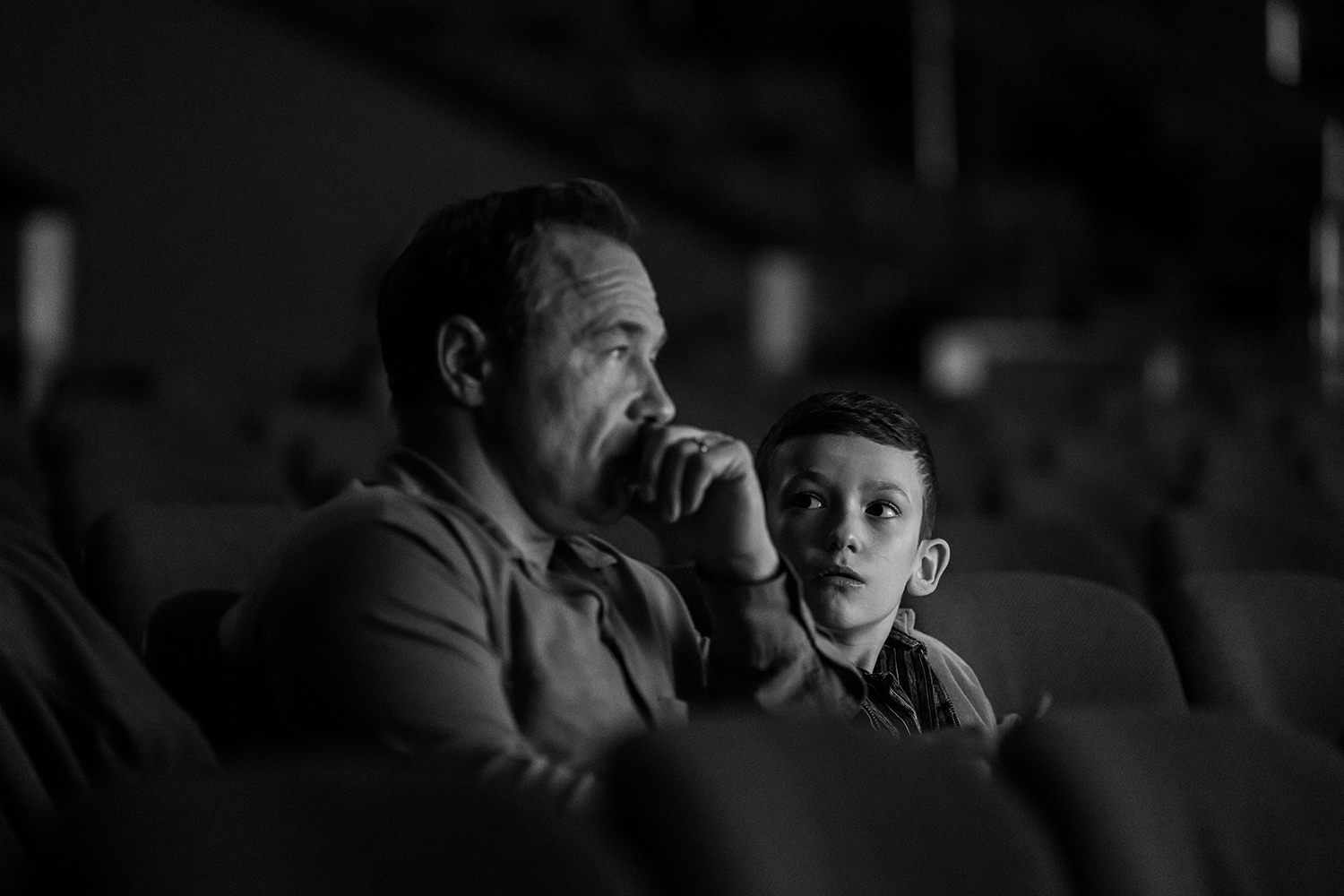
Stephen Graham as Douglas Dutch Springsteen and Matthew Anthony Pellicano Jr. as Young Bruce in a scene from "Springsteen: Deliver Me from Nowhere." (Photo by Macall Polay, courtesy of 20th Century Studios)
Director Scott Cooper's depiction of The Boss, brought to the screen from the pages of Warren Zanes' 2023 book, is refreshingly low on boss moves, as far removed from, say, the maximalism of Baz Luhrmann's “Elvis” as a major studio film released in 2025 can be. The “Crazy Heart” and “Out of the Furnace” director approximates the understated introspection in “Nebraska,” and his film is at its most engaging when showing the Jersey musician in a darkly lit bedroom, writing song lyrics in a notebook like a teenybopper confiding her deepest secrets in a diary.
In Springsteen's case, those secrets involved physical and emotional abuse from his dad Douglas, well-played by the suddenly ubiquitous Stephen Graham, who's mostly seen in flashbacks shot in stark black and white opposite Matthew Anthony Pellicano as Mini Bruce. Cooper's Pop Psych 101 approach to his subject's deeply dysfunctional upbringing does feel rather limiting, as is how it gives the formidable Gaby Hoffmann precious little to work with as Springsteen's long-suffering mother Adele. A subplot that follows Springsteen's haphazard courtship of diner server Faye Romano (Odessa Young) is pleasant enough but similarly undercooked.
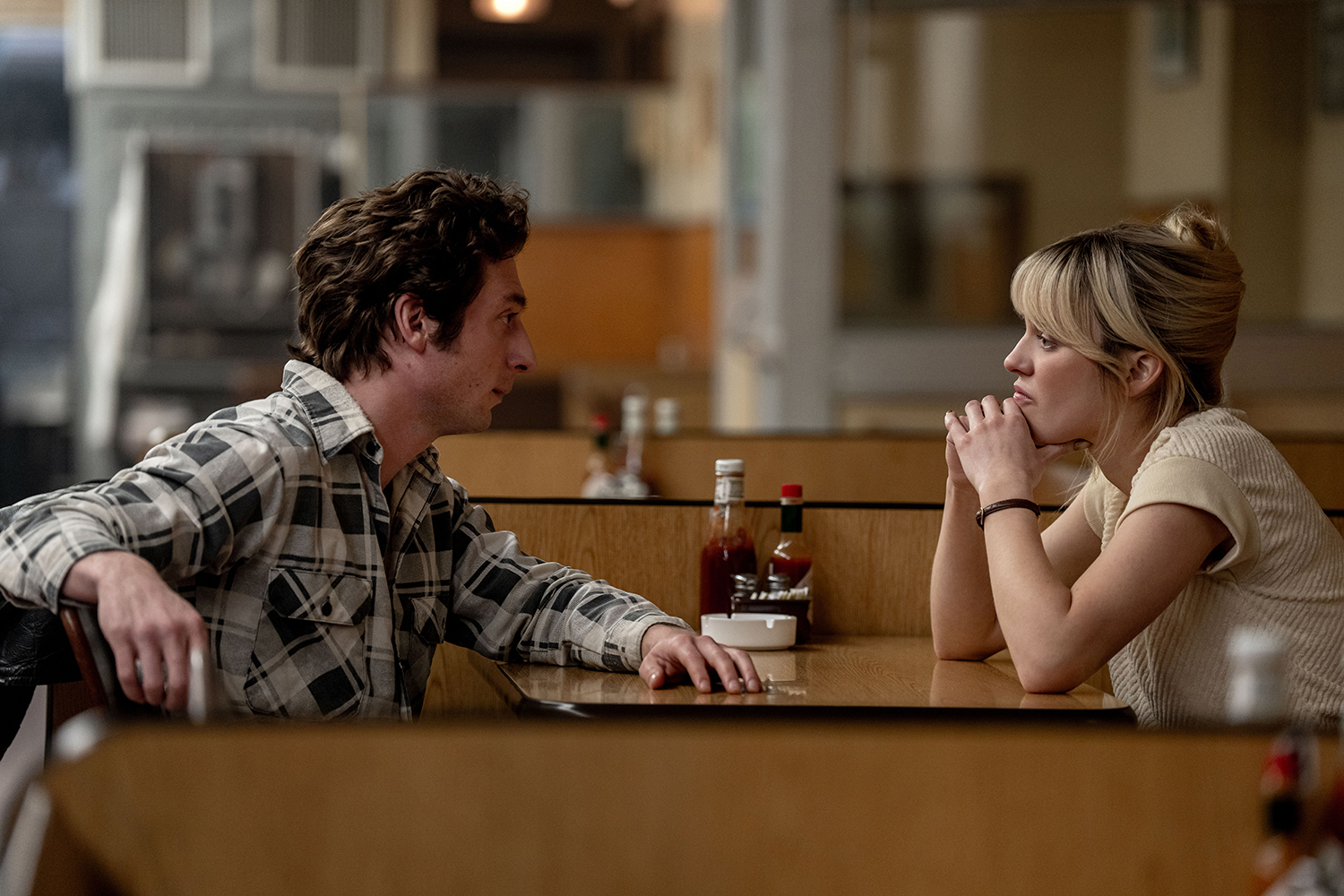
Jeremy Allen White as Bruce Springsteen and Odessa Young as Faye in a scene from "Springsteen: Deliver Me from Nowhere." (Photo by Macall Polay, courtesy of 20th Century Studios)
Daddy issues, a meteoric rise to stardom and the challenges of a life in showbiz. If this all sounds familiar, it's not just because the movie navigates well-trod territory. The criminally underseen “Better Man,” an exuberant and insouciant portrait of English pop star Robbie Williams tackled the same subject matter with more creativity and much less pouting.
But Springsteen's battles in “Deliver Me from Nowhere” are rendered with such conviction that it won me over all the same. Its ace in the hole are the scenes White shares with Jeremy Strong, fabulous as Springsteen's manager and producer Jon Landau despite the “Succession” star's overly studied accent. Cooper could have stooped to the behind-the-scenes cheese that ruined “Bohemian Rhapsody” when chronicling Landau's Herculean efforts to ensure his client's vision was retained throughout the trying ordeal that yielded “Nebraska.” (I honestly had no idea that Springsteen recorded some of the music in “Born in the USA,” including the title track, at the same time the songs that ended up “Nebraska” were percolating.) Thankfully, the filmmaker limits the head-butting with the powers that be to a couple of scenes.
Cooper's endgame isn't to go the “music execs are greedy and stoopid” route, anyway. He's shaped “Deliver Me from Nowhere” into another of his thoughtful explorations of masculinity, a heartfelt paean to the creative process that did not merit getting the cold shoulder at the box office. It nails Springsteen's humane touch.
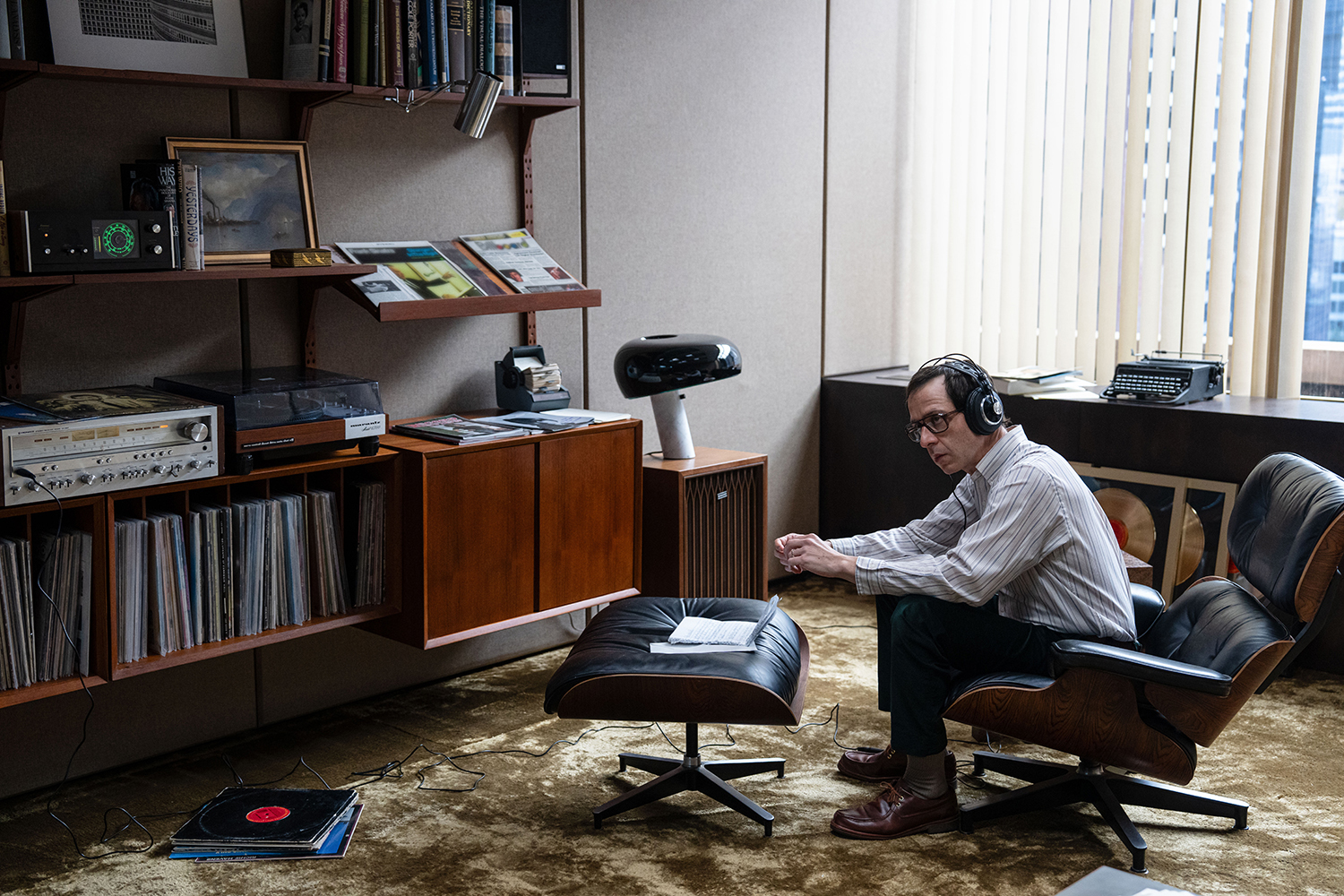
Jeremy Strong as Jon Landau in a scene from "Springsteen: Deliver Me from Nowhere." (Photo by Macall Polay, courtesy of 20th Century Studios)
“Train Dreams” is showing through next Wednesday at The Landmark at Merrick Park. It starts streaming on Netflix Friday, Nov. 21. “Springsteen: Deliver Me from Nowhere” is wrapping up its theatrical run and is still showing at AMC Aventura, AMC Sunset Place, Cinépolis Luxury Cinemas Coconut Grove, AMC DINE-IN Coral Ridge 10 in Fort Lauderdale and Cinemark Bistro Boca Raton.




